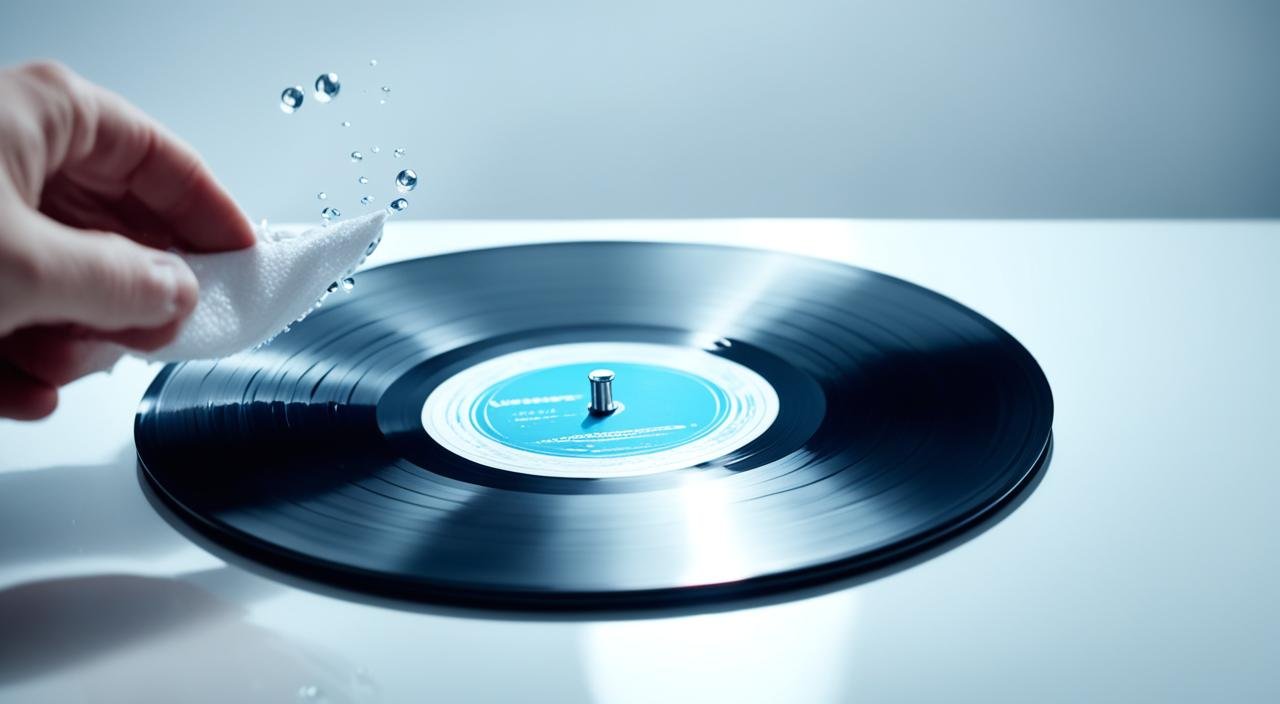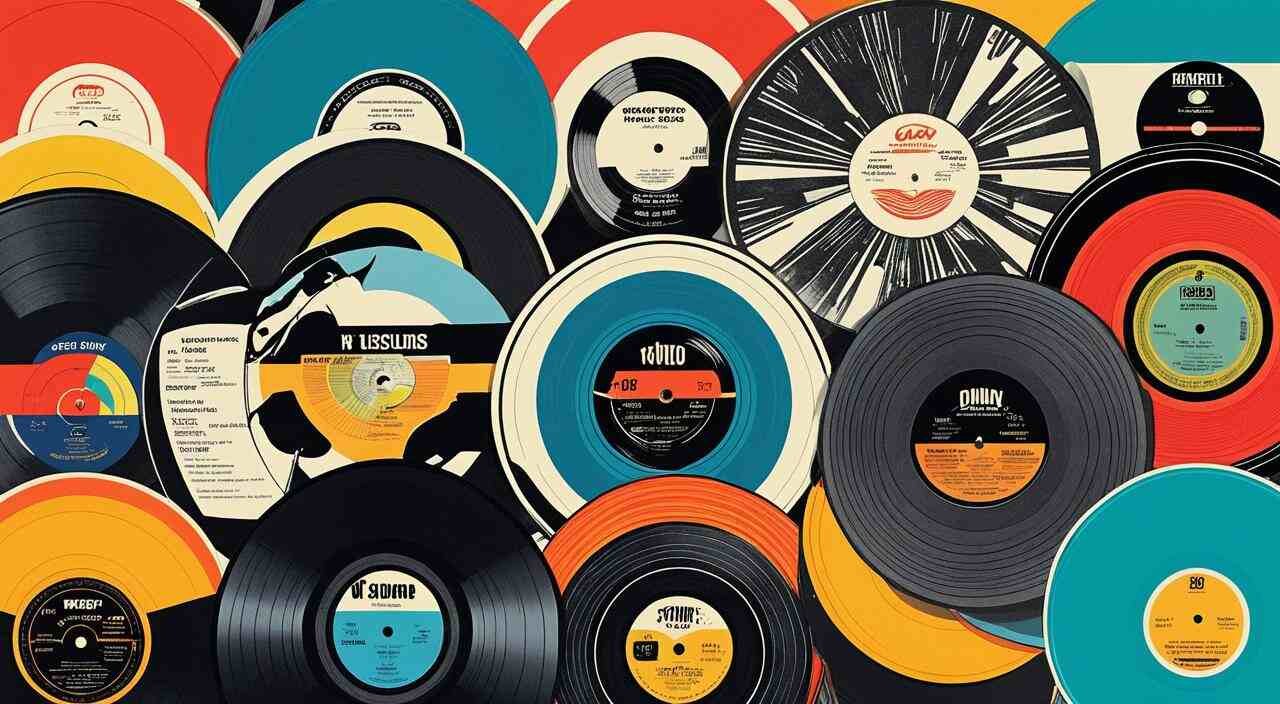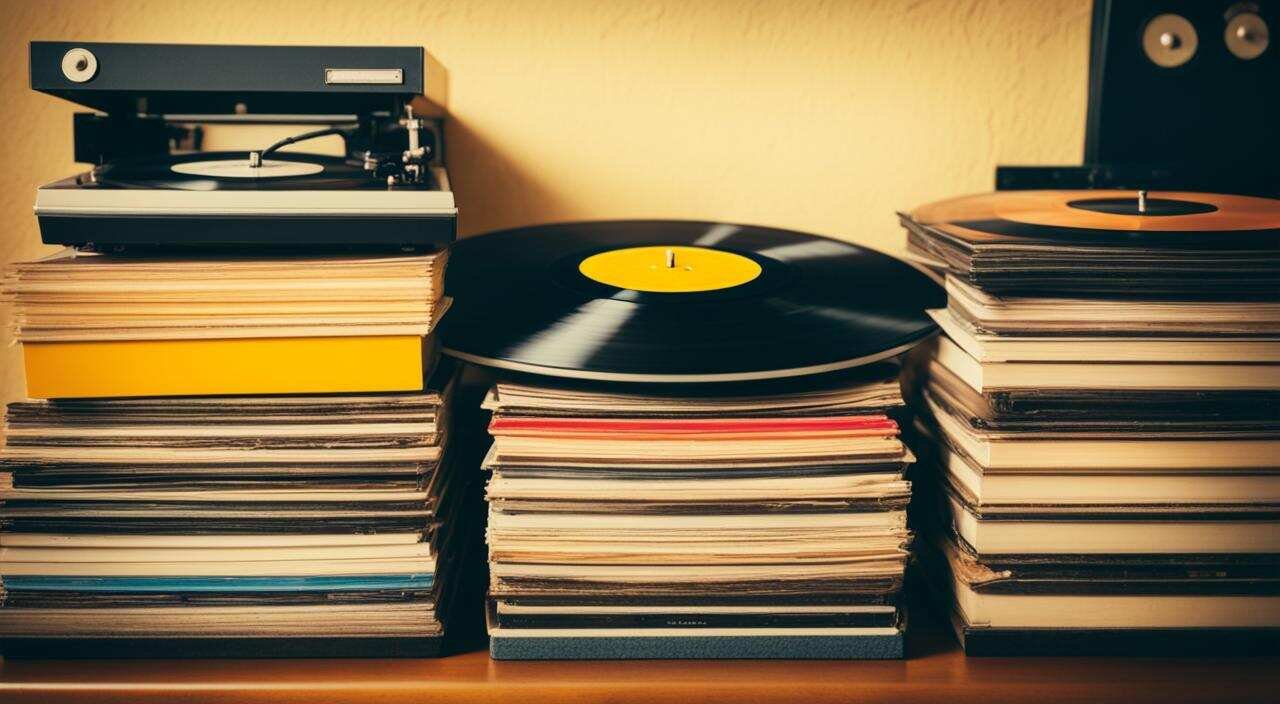Vinyl records are a beloved format for music enthusiasts, known for their warm sound and nostalgic appeal. However, over time, these records can accumulate dust, dirt, and fingerprints, affecting the sound quality and potentially causing skipping. Regular cleaning is essential to maintain the pristine condition of your vinyl collection.
Among the various methods available, using water to clean vinyl records is a popular choice. But can you really use water for this purpose? Let’s explore.
When it comes to cleaning vinyl records with water, there are a few things to consider. First and foremost, it is crucial to use distilled water rather than tap water. Tap water may contain minerals that can leave deposits and build-up in the grooves of the records, leading to further damage.
Using distilled water, you can gently clean the surface of the record to remove surface-level dust and debris. However, it’s important to note that water alone may not effectively remove stubborn stains or deep-seated dirt. In such cases, a combination of methods, such as using a record cleaning solution or specialized brushes, may be necessary for a thorough cleaning.
Key Takeaways:
- Cleaning vinyl records regularly is crucial for maintaining sound quality and preventing skipping.
- Using distilled water is recommended for cleaning records to avoid mineral deposits.
- Water alone may not effectively remove all dirt and debris, requiring additional cleaning methods for stubborn stains.
- Consider using a record cleaning solution or specialized brushes for a thorough and detailed cleaning.
- Take care to handle vinyl records with clean hands and store them in protective sleeves to prevent further contamination.
Best Practices for Water Cleaning Techniques
When it comes to cleaning vinyl records, water can be a valuable tool in your arsenal. However, it’s important to follow best practices to ensure that you clean your records effectively without causing any damage. Here are some tips to help you get the best results with water cleaning techniques:
- Use distilled water: Distilled water is free from impurities and minerals that can leave deposits on your vinyl records. This ensures a thorough and safe cleaning process.
- Prepare a cleaning solution: Mix distilled water with a few drops of mild, non-alcohol-based dish soap or a dedicated record cleaning solution. Avoid using harsh chemicals or alcohol, as they can damage the vinyl.
- Apply the solution: Moisten a soft, lint-free cloth or microfiber brush with the cleaning solution. Gently wipe the cloth or brush along the grooves of the record, following the direction of the grooves and avoiding circular motions.
- Remove excess moisture: After cleaning, use a separate dry cloth or brush to remove any excess moisture from the record. This helps prevent water from seeping into the label or the inner sleeve.
- Allow proper drying time: Leave the record to air dry completely before playing or storing it. This helps avoid any potential damage or warping caused by residual moisture.
Following these best practices will help you achieve the best possible results when cleaning your vinyl records with water. However, it’s important to note that water alone may not be sufficient to remove stubborn stains or deep-seated dirt. In such cases, you may need to consider alternative methods or seek professional cleaning services.
Other Methods for Cleaning Vinyl Records
While water cleaning can effectively remove dirt and debris from vinyl records, there are other methods available that can provide even better results. One option is to use a record cleaning machine, which is specifically designed to clean vinyl records with precision and care. These machines use a combination of brushes, suction, and cleaning solutions to thoroughly clean the grooves and remove any stubborn stains or contaminants. Investing in a record cleaning machine can greatly enhance the sound quality and longevity of your vinyl collection.
Another alternative is using vinyl vacuum cleaners, which are specially designed to eliminate dust and debris from records. These devices use gentle suction to remove dirt without causing any damage to the vinyl surface. Vinyl vacuum cleaners are particularly effective for removing deep-seated dirt and particles that may be difficult to remove with other methods. They are a valuable tool for maintaining the overall cleanliness of your vinyl records.
In addition to cleaning methods, proper storage techniques play a crucial role in preserving the condition of vinyl records. Using high-quality vinyl record storage solutions, such as sturdy record sleeves, can protect records from dust, scratches, and other potential damage. Opt for sleeves made from anti-static materials to minimize static electricity, which can attract dust particles. By storing your vinyl records in protective sleeves, you can prevent potential damage and ensure they remain in optimal condition for years to come.
Remember, regular cleaning and proper maintenance are key to enjoying the best possible sound quality from your vinyl records. Whether you choose to use water cleaning, invest in a record cleaning machine, or opt for vacuum cleaners and record sleeves, taking care of your vinyl collection will ensure that it brings joy and pleasure for years to come.
FAQ
Can you clean vinyl records with water?
Yes, it is possible to clean vinyl records with water. However, it is important to use distilled water to prevent mineral deposits and build-up. Water alone may not remove all dirt and debris, so a combination of methods may be necessary for stubborn stains.
What are the best practices for water cleaning techniques?
When using water to clean vinyl records, it is recommended to follow these tips for optimal results: 1. Use distilled water to avoid mineral deposits and build-up. 2. Apply the water with a soft, lint-free cloth or a record cleaning brush. 3. Gently wipe the record in a circular motion, following the grooves. 4. Avoid excessive moisture and ensure the record is completely dry before playing or storing.
Are there other methods for cleaning vinyl records?
Yes, besides water cleaning, there are other methods available. Some alternatives include using record cleaning machines or vinyl vacuum cleaners, which provide a deeper clean and help remove stubborn dirt. Proper vinyl record storage and using vinyl record sleeves can also contribute to maintaining the cleanliness and longevity of your records.









Leave a Reply